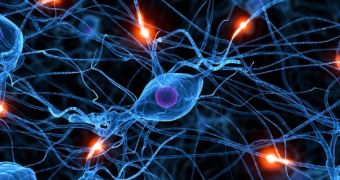It looks like the time has come to toss old books about the human brain out the window and roll out new ones. This is because there is one thing the people who wrote these books got terribly wrong: dendrites aren't just passive wiring in the brain. On the contrary, evidence shows that they actively process information.
In a paper published in yesterday's issue of the journal Nature, researchers with the University of North Carolina at Chapel Hill detail that dendrites, i.e. branch-like structures that stem from neurons, have long been believed to do no more and no less than transmit information from one neuron to the other.
However, recent evidence shows that, by means of electrical spikes generated by some of the molecules they contain, dendrites can toy with the input they receive from neurons. By doing do, they help up the human brain's computing power.
“Suddenly, it's as if the processing power of the brain is much greater than we had originally thought,” researcher Spencer Smith with the University of North Carolina's School of Medicine commented on these findings.
“Imagine you're reverse engineering a piece of alien technology, and what you thought was simple wiring turns out to be transistors that compute information. That's what this finding is like. The implications are exciting to think about,” he added.
As detailed on the University's official website, the scientists found that dendrites process information after carrying out a series of experiments on laboratory mice.
Specifically, they monitored electrical activity in the brains of several such rodents and found that electrical spikes in dendrites varied depending on the visual stimuli the animals were receiving. This meant that the dendrites were playing an active role in the animals' sense of sight.
Since the electrical spikes recorded in the mice's dendrites did not always go hand in hand with spikes in other parts of the rodents' neurons, it was concluded that the dendrites were the ones doing the processing and that they were not merely receiving input and transmitting it further.
“All the data pointed to the same conclusion. The dendrites are not passive integrators of sensory-driven input; they seem to be a computational unit as well,” specialist Spencer Smith said.
In light of these findings, researchers argue that it might not be that far-fetched to refer to dendrites as “mini-neural computers.” They hope that, in time, their work will lead to a better understanding of various neurological disorders.

 14 DAY TRIAL //
14 DAY TRIAL //